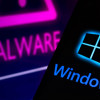Microsoft's Ambivalence About Kinect Hackers
Bearded, clad in a hoodie, and with a mouthful of swear words, hacker Kyle Machulis took the stage last month at San Francisco music joint Rickshaw Stop. He was there to deliver a Nerd Night talk about his latest love: Microsoft's (MSFT) Kinect, a gesture-and-voice-recognition accessory for the Xbox gaming console that lets people play video games without having to hold a controller. "This thing costs $150 and is sold at GameStop," Machulis told the crowd. "Oh, s—t! We live in the future!"
Machulis serves as one of the leaders of the Open Kinect project, an ad hoc effort backed by thousands of hackers and DIY enthusiasts. They've cracked open and studied Microsoft's latest device and are now putting it to unexpected new uses, ranging from commanding robots with hand motions to performing sex acts on avatars.
The intense interest that Kinect has drummed up in geekdom presents Microsoft with an unfamiliar opportunity. At a time when Apple (AAPL), Google (GOOG), and other tech giants are vying to reach independent developers who make the ingenious software apps that have reshaped the market for things like smartphones and tablets, Microsoft has stumbled onto a direct path to them. Experts say that if Microsoft can focus the energy of that horde, the company may be able to leverage Kinect's early success and dominate the next era of human-computer interactions, in which PCs, phones, and other electronics can be controlled by body movements and voice commands instead of keyboards and mice. "Microsoft has succeeded despite themselves in creating something really cool," says Matt Asay, a prominent open-source blogger and executive at software startup Strobe. Yet a number of critics say the relationship between Microsoft and Kinect-loving geeks is already strained, and that Microsoft's early reactions to their playful tinkering suggest it could squander a once-in-a-generation opportunity. "Here was a chance to throw themselves deep into the bowels of the open-source hippy movement," Asay says. "They are kind of trying to do it, but they don't want to touch anyone in the mosh pit."









































































